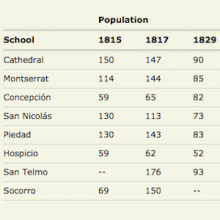Law
Report of Vadim Zagladin on his conversation with Chairman of the Czechoslovak
International relations specialist and key Gorbachev advisor Vadim Zagladin made this report to the Soviet Politburo in early April 1989. In it, Zagladin recounts his conversation with Jan Pudlak, a high-ranking Czechoslovak official, about the situation in Pudlak's country.
Legalization versus Re-legalization of NSZZ "Solidarity"
Formed in September 1980 in Poland and recognized as a legal union by Communist officials in November, Solidarity was formally dissolved by Communist leaders on October 8, 1982, and forced to function illegally and underground.
Miscellaneous Jokes: GDR Jokes C
George Orwell once wrote, "Every joke is a tiny revolution." In state-socialist societies that had (or have) totalitarian characteristics, individuals found clever ways to carve out areas of freedom for themselves.
Humor for All Occasions: GDR Jokes B
George Orwell once wrote, "Every joke is a tiny revolution." In state-socialist societies that had (or have) totalitarian characteristics, individuals found clever ways to carve out areas of freedom for themselves.
Long Teaching Module: Sexuality, Marriage, and Age of Consent Laws, 1700-2000
In western law, the age of consent is the age at which an individual is treated as capable of consenting to sexual activity. Consequently, any one who has sex with an underage individual, regardless of the circumstances, is guilty of a crime.
A Mother's Experience in Bulgaria
The ethnic Turks living in Bulgaria had faced discrimination throughout Bulgaria's history. In May 1989, throughout the Turkish areas of Bulgaria, there were a series of peaceful demonstrations staged by the Turkish minority; in some cases, entire villages joined the protests.
The Warsaw Pact
Following the final approval of the Paris Peace Treaties that ended World War II, the North Atlantic Treaty Organization (NATO) planned to incorporate the new state of West Germany into their military alliance in the spring of 1955.
Treaty on the Final Settlement with Respect to Germany
At the end of World War II, Germany was divided into four zones of occupation, with each being overseen by one of the Allied powers: the U.S., Great Britain, France, and the Soviet Union.
Rudé Pravo Alcohol and Cigarette Abuse
Alcohol and cigarette consumption were very regular parts of everyday life for great numbers of Eastern Europeans, including youth, during the Cold War era. In fact, these countries had some of the highest alcoholism rates in the world and a very large percentage of the population smoked.

Long Teaching Module: Parents, Children, and Political Authority in 19th century Argentina
Between 1810 and 1860, Argentina emerged as a deeply divided nation. One of the main problems that remained unresolved throughout the 19th century was how power would be shared between Buenos Aires, the capital, and the rest of the provinces.